Temperature Sensors Size
Temperature Sensors Market Growth Projections and Opportunities
The Global Temperature Sensors Market is shaped by a multitude of market factors that collectively influence its growth and trajectory. One key driver is the widespread adoption of temperature sensors across various industries. As industries become more reliant on accurate and real-time temperature monitoring, temperature sensors play a crucial role in ensuring product quality, process efficiency, and equipment safety. From manufacturing processes to healthcare applications, temperature sensors contribute to maintaining optimal conditions, driving the market's expansion.
Technological advancements are fundamental to the evolution of the Global Temperature Sensors Market. Continuous innovations in sensor technologies, such as infrared sensors, thermocouples, and resistance temperature detectors (RTDs), enhance the precision, sensitivity, and reliability of temperature measurement. Integration with smart technologies, including the Internet of Things (IoT), allows for remote monitoring, data analytics, and automation, expanding the capabilities of temperature sensors across diverse applications. These technological advancements not only improve the performance of temperature sensors but also contribute to their increasing adoption in emerging industries.
The automotive sector is a significant contributor to the growth of the Global Temperature Sensors Market. The integration of temperature sensors in modern vehicles is essential for monitoring engine temperature, ensuring efficient combustion, and preventing overheating. Additionally, temperature sensors play a crucial role in automotive climate control systems, enhancing passenger comfort and safety. As the automotive industry continues to embrace electric vehicles (EVs), the demand for temperature sensors for battery management and thermal monitoring further boosts market growth.
Environmental concerns and regulatory standards are influential factors shaping the Global Temperature Sensors Market. Stringent regulations governing industries such as food and pharmaceuticals require precise temperature control and monitoring to ensure compliance with quality and safety standards. Temperature sensors aid in maintaining the integrity of perishable goods during transportation and storage. Furthermore, environmental monitoring applications, including climate research and weather forecasting, rely on temperature sensors for accurate data collection, contributing to the market's diverse range of applications.
The healthcare industry is another pivotal contributor to the Temperature Sensors Market. In medical applications, temperature sensors are integral for patient monitoring, diagnostics, and laboratory equipment. Continuous advancements in healthcare technologies, such as wearable devices and remote patient monitoring, drive the demand for compact and high-precision temperature sensors. The integration of temperature sensors in medical devices ensures accurate temperature measurement, supporting healthcare professionals in delivering optimal patient care.
Market competition and the presence of key players contribute to the dynamics of the Global Temperature Sensors Market. Established sensor manufacturers and new entrants engage in research and development to introduce innovative sensor solutions. Partnerships, collaborations, and acquisitions are common strategies employed by market players to broaden their product portfolios and strengthen their market presence. This competitive landscape fosters continuous innovation and ensures that temperature sensors remain at the forefront of technological advancements.


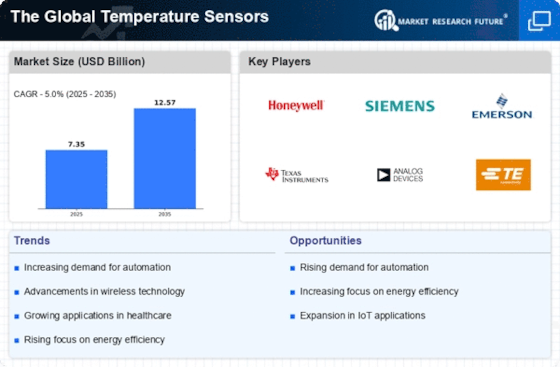
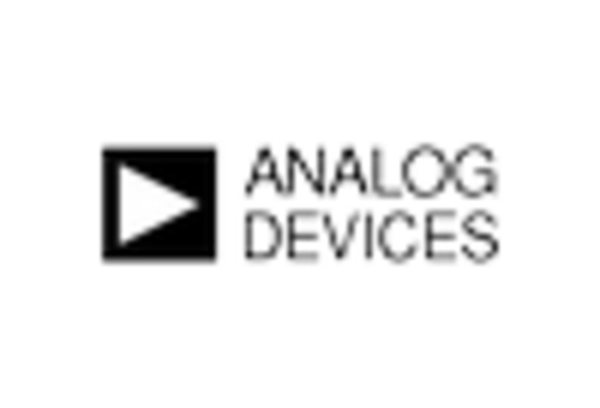
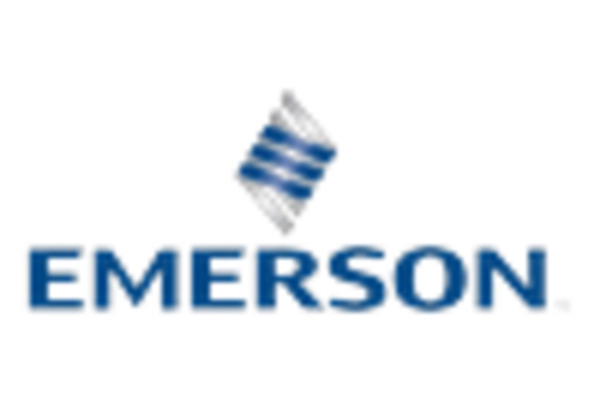


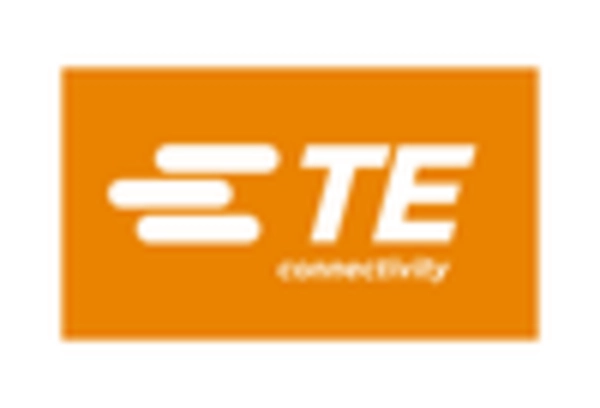
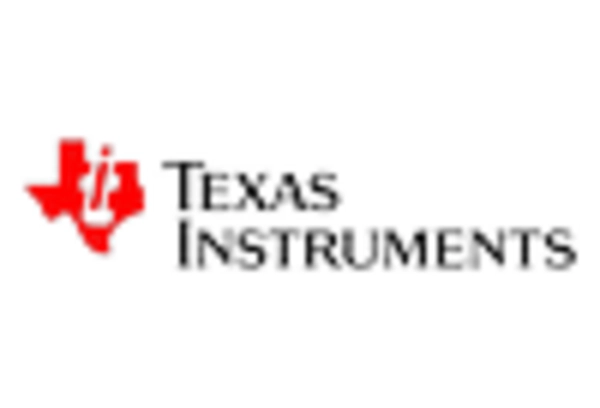









Leave a Comment